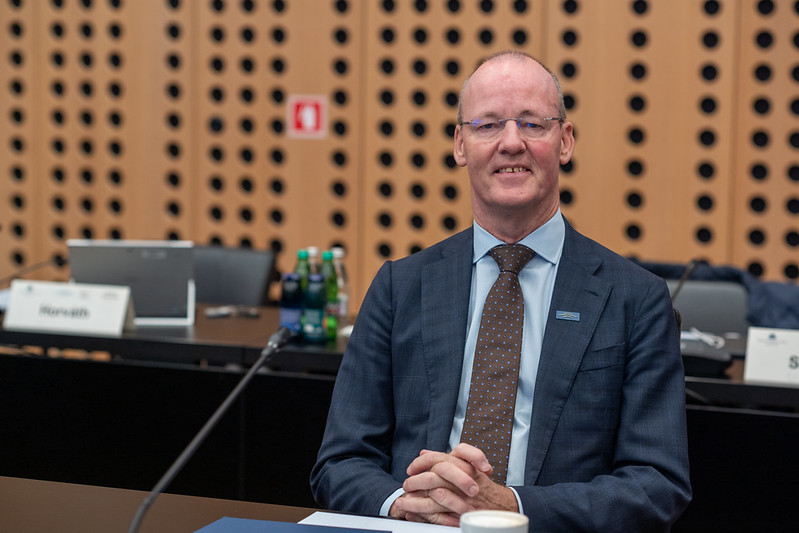ECB’s Knot: Inflation May Fall Faster Than Expected in Short Term
26 October 2024

By Marta Vilar – WASHINGTON (Econostream) – European Central Bank Governing Council member Klaas Knot said on Saturday that inflation numbers could fall more quickly than what the ECB had anticipated in the near term.
In a speech at the G30 International Banking Seminar in Washington, Knot, who heads de Nederlandsche Bank, said that ‘it is clear that the risks surrounding the outlook have become more balanced.’
In the near term, inflation could fall at a more rapid pace than previously estimated, as headline and core inflation had surprised to the downside, he said.
‘The likelihood of inflation either below or above our target has become even-handed’, he said, ‘This implies that for the coming two years market-based inflation expectations are much more centred around the ECB’s 2% symmetric inflation target.’
The ECB’s confidence on inflation reaching 2% in a timely manner had increased and data suggested a higher risk of slower growth than expected in the short and medium term, he stated.
‘Looking forward, in this environment with significant uncertainty about the supply side of the economy, it is important to keep all options open’, he indicated.
The ECB’s restrictiveness should be eased if new data suggested inflation was coming down faster than expected or if a considerable disappointment in economic growth and its consequences for inflation were to materialise, he said.
However, tight monetary policy should be reduced at a slower pace if there were upward surprises on inflation or if new data came in unexpectedly positively for growth, he said.
‘In any case, the meeting-by-meeting and data-dependent approach has served us well, as it helped to maintain the much-needed two-way optionality and flexibility for future rate decisions’, he added.
